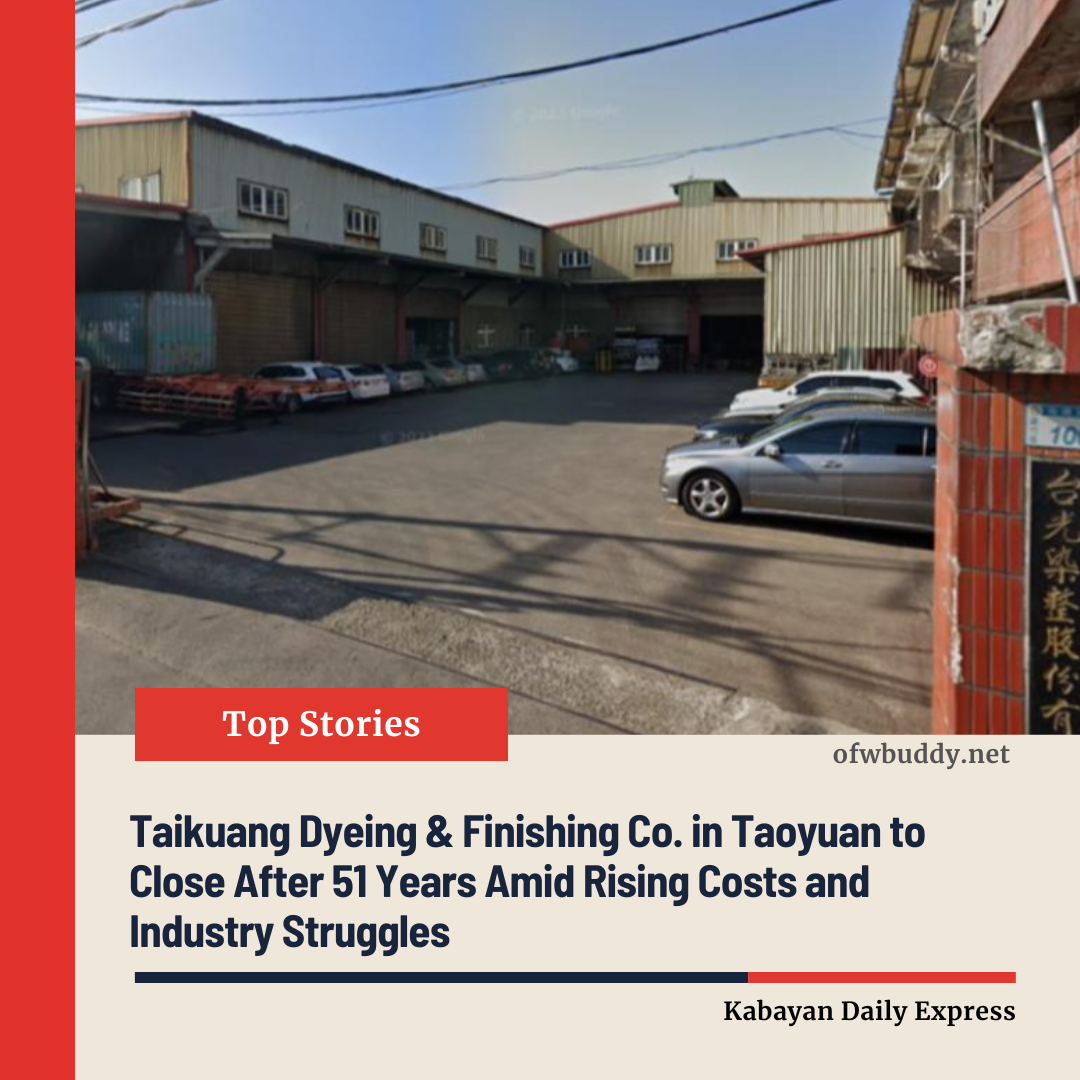Taoyuan City, Taiwan (November 2, 2025)— After more than half a century in operation, Taikuang Dyeing & Finishing Co., Ltd., a long-established textile processing company in Luzhu District, has announced it will officially shut down on December 31, 2025, marking the end of its 51-year legacy in Taiwan’s traditional manufacturing sector.
The company’s chairman, Wu Chih-jung, issued a notice to employees explaining the decision, citing severe operational difficulties and the company’s inability to sustain business under current economic conditions.
The announcement gained public attention after former Kuomintang legislator Chen Hsueh-sheng shared the company’s closure notice on Facebook on October 31, expressing sympathy for the workers and concern for Taiwan’s shrinking traditional industries.
Economic Pressures and Global Challenges
A friend from the fabric export industry told Chen that the dyeing and textile sector had suffered greatly in recent years. “During the pandemic, orders dropped sharply, and shipping costs skyrocketed. We barely survived that period, only to be hit again by the U.S.-China trade war,” the business owner lamented.
He added that many long-time partner factories were now closing, unable to cope with soaring expenses and uncertain global demand. “Even when new orders come in, costs are too high and suppliers are dwindling. The future looks grim, and the government’s support feels minimal. Only the banks are paying attention—and not in a helpful way,” he said.
Rising Costs and Competition
In its official statement, Taikuang Dyeing & Finishing explained that the volatile international market, surging freight costs, and fluctuating exchange rates had severely strained operations. The company also cited the difficulty of competing with low-cost Chinese textile products, particularly in the pricing of raw yarns.
At the same time, domestic production costs—including energy, labor, and environmental compliance expenses—have continued to climb. Stricter environmental regulations have caused a significant increase in heating and utility costs, further burdening the company’s finances.
“The volume of customer orders is no longer enough to sustain operations,” the company said. “After thorough evaluation, we found no signs of improvement, and thus made the difficult decision to cease operations by year-end.”
A Reflection of Taiwan’s Manufacturing Decline
Taikuang’s closure underscores the ongoing challenges facing Taiwan’s traditional textile and dyeing industries. Many long-standing manufacturers are struggling to compete globally amid rising costs, environmental pressures, and shifting trade dynamics.
Industry observers warn that without stronger policy support, more small and medium-sized manufacturers could follow Taikuang’s path, ending decades of craftsmanship and employment in once-thriving industrial zones.

